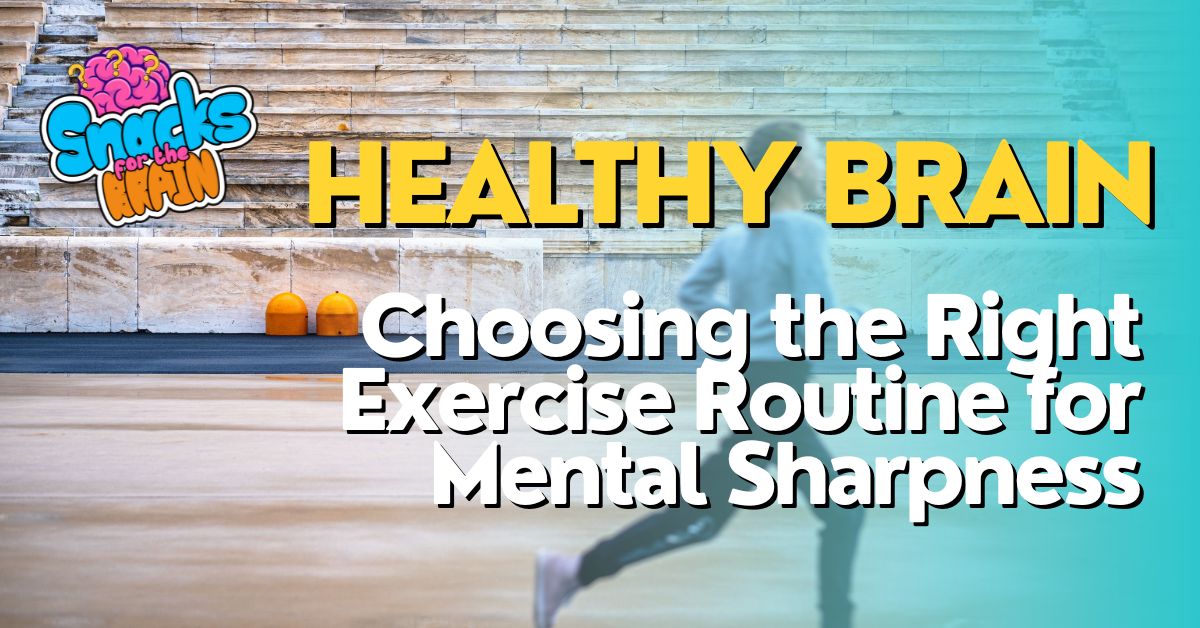Balance and coordination are vital aspects of brain health and overall well-being. The brain plays a central role in controlling and coordinating movements through a complex interaction of various sensory and motor systems. Balance refers to the ability to maintain the body’s center of mass over its base of support, while coordination involves executing smooth, accurate, and controlled movements.
Both functions are closely tied to cognitive processes, as they require the brain to process sensory information, make decisions, and execute motor commands. The brain’s capacity to maintain balance and coordination depends on integrating sensory information from three primary systems: the vestibular system (inner ear), visual system, and proprioceptive system (sensory receptors in muscles and joints). This integration enables real-time adjustments to posture and movement, allowing safe and effective navigation of the environment.
Optimal functioning of these systems not only supports physical performance but also contributes to cognitive function. Research has demonstrated a correlation between better balance and coordination and improved cognitive function, including enhanced attention, memory, and executive function. This evidence underscores the significant role that balance and coordination play in brain health and overall cognitive function.
Key Takeaways
- Balance and coordination play a crucial role in brain health, affecting cognitive function and overall well-being.
- Regular balance and coordination exercises can improve cognitive function and help prevent cognitive decline.
- Incorporating balance and coordination exercises into your daily routine can have a positive impact on your overall brain health.
- There is a strong connection between balance and coordination and overall brain health, highlighting the importance of these exercises.
- Seeking professional guidance for balance and coordination training can ensure that you are engaging in safe and effective exercises for optimal brain health.
The Impact of Balance and Coordination Exercises on Cognitive Function
Challenging the Brain and Body
Balance and coordination exercises often involve activities that require focused attention, such as standing on one leg, navigating obstacle courses, or performing precise movements. These activities not only challenge the body’s physical abilities but also require the brain to actively participate in coordinating movements and maintaining balance. As a result, the brain is constantly being stimulated and challenged, leading to improvements in cognitive function over time.
Improving Reaction Time
Additionally, these exercises can also help improve reaction time, which is essential for everyday activities and can contribute to overall cognitive function.
A Holistic Approach to Brain Health
Overall, the impact of balance and coordination exercises on cognitive function is significant, making them an important component of a holistic approach to brain health.
How Balance and Coordination Exercises Can Help Prevent Cognitive Decline

As we age, cognitive decline becomes a concern for many individuals. However, engaging in regular balance and coordination exercises can help prevent or slow down this decline. These exercises challenge the brain to process sensory information, make quick decisions, and execute precise motor commands, all of which are essential for maintaining balance and coordination.
By consistently engaging in these activities, individuals can help preserve their cognitive function as they age. Research has shown that individuals who participate in regular balance and coordination exercises are less likely to experience cognitive decline compared to those who do not engage in these activities. This is because these exercises stimulate the brain and promote neuroplasticity, which is the brain’s ability to reorganize itself by forming new neural connections.
As a result, engaging in these exercises can help maintain cognitive function and even improve it over time. Additionally, these exercises can also help reduce the risk of falls and injuries, which can have a significant impact on overall brain health. Therefore, incorporating balance and coordination exercises into one’s routine can be an effective strategy for preventing cognitive decline and promoting long-term brain health.
The Connection Between Balance and Coordination and Overall Brain Health
The connection between balance and coordination and overall brain health is undeniable. The brain plays a central role in controlling and coordinating movements, and this requires a complex interplay of various sensory and motor systems. When we talk about balance, we are referring to the ability to maintain the body’s center of mass over its base of support.
On the other hand, coordination involves the ability to execute smooth, accurate, and controlled movements. Both balance and coordination are closely linked to cognitive function, as they require the brain to process sensory information, make decisions, and execute motor commands. The brain’s ability to maintain balance and coordination is dependent on the integration of sensory information from the vestibular system (inner ear), visual system, and proprioceptive system (sensory receptors in the muscles and joints).
This integration allows the brain to make real-time adjustments to posture and movement, ensuring that we can navigate our environment safely and effectively. When these systems are functioning optimally, it not only supports physical performance but also contributes to cognitive function. Research has shown that individuals with better balance and coordination tend to have better cognitive function, including attention, memory, and executive function.
Therefore, it is clear that balance and coordination play a crucial role in brain health and overall cognitive function.
Incorporating Balance and Coordination Exercises into Your Daily Routine
Incorporating balance and coordination exercises into your daily routine is essential for promoting brain health and overall well-being. There are various activities that can help improve balance and coordination, such as yoga, tai chi, Pilates, dancing, or specific exercises targeting these skills. These activities challenge the brain to process sensory information, make quick decisions, and execute precise motor commands, all of which are essential for maintaining balance and coordination.
One simple way to incorporate balance exercises into your daily routine is by practicing standing on one leg while performing everyday tasks such as brushing your teeth or washing dishes. This simple activity can help improve stability and proprioception while also challenging your cognitive function. Additionally, incorporating activities such as yoga or tai chi into your weekly schedule can provide a holistic approach to improving balance and coordination while also promoting relaxation and stress reduction.
By making these activities a regular part of your routine, you can effectively support your brain health while also reaping the physical benefits of improved balance and coordination.
The Benefits of Balance and Coordination Exercises for Mental Well-being

Improved Reaction Time and Everyday Function
Additionally, these exercises can also help improve reaction time, which is essential for everyday activities and can contribute to overall mental well-being.
Reducing Stress and Anxiety through Mindfulness
Furthermore, participating in activities such as yoga or tai chi can provide a sense of relaxation and stress reduction, which can have a positive impact on mental well-being. These activities often incorporate mindfulness practices that promote present-moment awareness and emotional regulation, leading to reduced stress levels and improved mental clarity.
Boosting Mood through Physical Activity
Additionally, engaging in physical activity has been shown to release endorphins, which are natural mood lifters that can help combat feelings of anxiety or depression. Overall, incorporating balance and coordination exercises into your routine can have significant benefits for mental well-being by promoting cognitive function, reducing stress levels, and enhancing overall mood.
Seeking Professional Guidance for Balance and Coordination Training
Seeking professional guidance for balance and coordination training can be beneficial for individuals looking to improve their skills in these areas. Physical therapists or certified trainers can provide personalized guidance based on an individual’s specific needs and goals. They can assess current abilities related to balance and coordination and develop a tailored exercise program to address any areas of weakness or limitation.
Additionally, professional guidance can ensure that exercises are performed safely and effectively to prevent injury or strain. Trainers can provide proper instruction on technique and form to maximize the benefits of each exercise while minimizing the risk of injury. Furthermore, they can offer ongoing support and motivation to help individuals stay committed to their training program.
Overall, seeking professional guidance for balance and coordination training can provide individuals with the knowledge, support, and accountability needed to make meaningful progress in these areas. Whether it’s through one-on-one sessions with a trainer or participation in group classes led by experienced instructors, professional guidance can enhance the effectiveness of balance and coordination training while promoting overall safety and well-being. In conclusion, balance and coordination play a crucial role in brain health and overall well-being.
Engaging in regular exercises that challenge these skills can lead to improvements in cognitive function while also helping prevent cognitive decline as we age. By incorporating these exercises into our daily routines with professional guidance when needed, we can support our brain health while also reaping the physical benefits of improved balance and coordination. It’s clear that these exercises offer numerous benefits for mental well-being as well by promoting cognitive function while reducing stress levels and enhancing overall mood.
Therefore, it’s important to prioritize balance and coordination training as part of a holistic approach to brain health and overall well-being.
For more information on the importance of balance and coordination exercises for brain health, check out the article «The Impact of Physical Activity on Cognitive Function» on Intelligencesnhacks. This article delves into the connection between physical activity and cognitive function, emphasizing the role of balance and coordination exercises in maintaining a healthy brain. It provides valuable insights into how different types of physical activities can positively impact brain health and overall cognitive function.
FAQs
What are balance and coordination exercises?
Balance and coordination exercises are physical activities that help improve the body’s ability to maintain stability and control movement. These exercises often involve activities that challenge the body’s equilibrium and require precise muscle control.
Why are balance and coordination exercises important for brain health?
Balance and coordination exercises are important for brain health because they help stimulate and strengthen neural connections in the brain. These exercises require the brain to process sensory information and coordinate muscle movements, which can help improve cognitive function and reduce the risk of cognitive decline.
What are some examples of balance and coordination exercises?
Examples of balance and coordination exercises include yoga, tai chi, Pilates, dancing, and specific balance training exercises such as standing on one leg, walking heel-to-toe, and using balance boards or stability balls.
How often should balance and coordination exercises be performed for brain health?
It is recommended to perform balance and coordination exercises for at least 30 minutes, 3-4 times per week to see improvements in brain health. However, it’s important to consult with a healthcare professional before starting any new exercise routine, especially for individuals with pre-existing health conditions.
Who can benefit from balance and coordination exercises for brain health?
Balance and coordination exercises can benefit individuals of all ages, from children to older adults. These exercises can help improve cognitive function, reduce the risk of falls and injuries, and enhance overall brain health.






